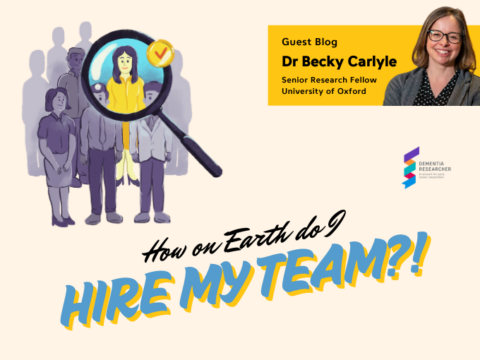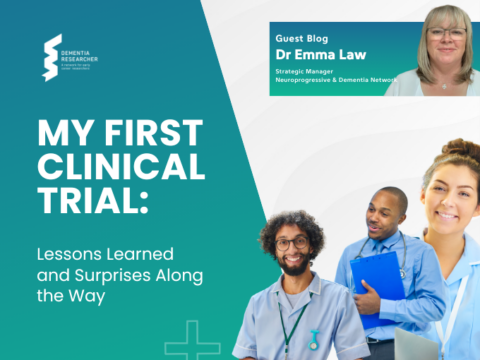As a PhD researcher who began studies during the middle of the pandemic, there have not been many, err any, opportunities to meet others in the flesh, face-to-face, in 3D realness. But on the 6th of July an opportunity arose for me to meet fellow students and academics interested in dementia research in real life. I’m going to review the day, what I learned and hopefully get more of you interested in joining our research group and presenting at upcoming meetings!
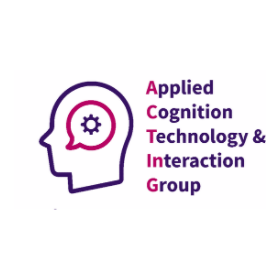 In early 2021 students and academics, led by Professor Eef Hogervorst and Dr Saul Albert at Loughborough University formed ACTInG – the Applied Cognition, Technology and Interaction Group. We are an open network of researchers aiming to promote interdisciplinary research in biomedical, psychological, design and interactional research to support the wellbeing, mental health and independence of people living with dementia, cognitive decline, and associated disabilities. We are currently a small group with around 15 members attending monthly meetings. If you would like to join us and present for 10 minutes about your work or an interest of yours related to any of the fields mentioned above, you can join us. It’s a really friendly community and each month we have a presentations from a student/ECR and one from a more advanced researcher/academic. Then everyone offers feedback and encouragement. It can be a great place to communicate research findings, practice a conference talk, or discuss a research idea with likeminded people. You can read a little more about the founding of the group and the format for meetings and events.
In early 2021 students and academics, led by Professor Eef Hogervorst and Dr Saul Albert at Loughborough University formed ACTInG – the Applied Cognition, Technology and Interaction Group. We are an open network of researchers aiming to promote interdisciplinary research in biomedical, psychological, design and interactional research to support the wellbeing, mental health and independence of people living with dementia, cognitive decline, and associated disabilities. We are currently a small group with around 15 members attending monthly meetings. If you would like to join us and present for 10 minutes about your work or an interest of yours related to any of the fields mentioned above, you can join us. It’s a really friendly community and each month we have a presentations from a student/ECR and one from a more advanced researcher/academic. Then everyone offers feedback and encouragement. It can be a great place to communicate research findings, practice a conference talk, or discuss a research idea with likeminded people. You can read a little more about the founding of the group and the format for meetings and events.
The event itself was the first academic event I have been involved in organising, and the first hybrid event too. I helped with organising the program, gathering abstracts and bios for presenters and with getting the hybrid online part of the event running on the day. This was a great experience in working with others, even if technology can be temperamental! I think this is something we have all gotten used to and are able to make allowances for. Due to ease and social distancing restrictions, most attendees were online, but nearly all the presenters were there in person which was just amazing. I was also able to see one of my supervisors Professor Liz Peel in real life for the first time since beginning my PhD in October 2020!
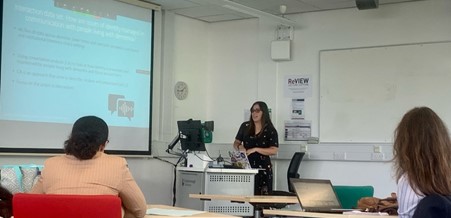 The day featured two keynote talks: one from Dr Mike Craven, who is an expert on technology to improve mental health, and another from Professor Liz Peel, who specializes in communication and interaction with people with dementia. Mike spoke about two MindTech projects: MinD – Designing with and for people living with dementia, and Brain+ Project Alzheimer’s disease Detect-Prevent. Mike also covered different assistive technologies that can support people living with dementia. In Liz’s keynote, the centrality of discourse in (re)producing understandings of dementia that include some, and exclude others was discussed. Drawing on Liz’s personal connection to dementia and discussing the importance of relationship networks that surround the person living with a dementia. There were also eight 10-minute talks from postgraduate students/researchers and academics. These ranged from discussing the usefulness (or otherwise) of virtual assistants such as Alexa in supporting the agency of people with disabilities to the impacts of exercise upon dementia, as well as how eye-tracking could be used to diagnose dementia. All the talks from the day were recorded and can be viewed on our YouTube channel. There was also discussion of the Dementia Care Facility project led by Bill Halsall, Professor Sue Hignett and Eef Hogervorst.
The day featured two keynote talks: one from Dr Mike Craven, who is an expert on technology to improve mental health, and another from Professor Liz Peel, who specializes in communication and interaction with people with dementia. Mike spoke about two MindTech projects: MinD – Designing with and for people living with dementia, and Brain+ Project Alzheimer’s disease Detect-Prevent. Mike also covered different assistive technologies that can support people living with dementia. In Liz’s keynote, the centrality of discourse in (re)producing understandings of dementia that include some, and exclude others was discussed. Drawing on Liz’s personal connection to dementia and discussing the importance of relationship networks that surround the person living with a dementia. There were also eight 10-minute talks from postgraduate students/researchers and academics. These ranged from discussing the usefulness (or otherwise) of virtual assistants such as Alexa in supporting the agency of people with disabilities to the impacts of exercise upon dementia, as well as how eye-tracking could be used to diagnose dementia. All the talks from the day were recorded and can be viewed on our YouTube channel. There was also discussion of the Dementia Care Facility project led by Bill Halsall, Professor Sue Hignett and Eef Hogervorst.
I was also able to present my own talk, discussing one part of my PhD research – ‘Managing identity in dementia interactionally’. I briefly introduced the approach of conversation analysis and gave a video example of how conversation analysis can be used to study identity in interactions of people with dementia and their conversation partners. Being able to present your work in this way, I found really useful as you must think about your audience. In this case, the audience understood dementia as a condition and what it can entail, but most attendees and some presenters had never used or come across conversation analysis before. So, I needed to think about how I could present a small bit of analysis without it being overladen with jargon, and hence inaccessible to the audience. I really enjoyed the broken-down step-by-step approach that my supervisor Dr Saul Albert recommended to use. I found it not only made the analysis accessible but helped me in thinking about how to present in the future and how we should adapt our styles of dissemination to make them more inclusive.
From being a part of this event and giving a talk, I also learned the power of an academic community. It gave me a real lift in motivation. I think we sometimes do not realise how important the chatting and discussing that happens around an event is to developing ideas and thinking through our research. It was a really valuable experience, and I cannot wait for our next research networking day, which will be happening towards the end of this calendar year. I really hope to see some of you there – you can join as an ACTInG member by emailing owner-acting@lists.lboro.ac.uk. I promise you will not regret joining, can I bribe you with some cupcakes?!!
Author
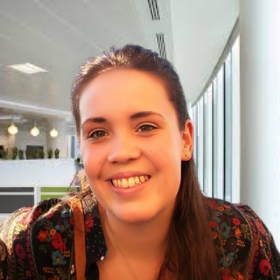
Felicity Slocombe
Felicity Slocombe is a first year PhD Student from Loughborough University. Felicity’s research focuses on identity and dementia and how identity can be managed interactionally – how we can help support identity of people living with dementia through our conversations. Driven by a family connection to dementia, and writing each month on a range of topics from her work, and that of her wider group ACTInG (Applied Cognition Technology and Interaction Group), and sharing news from her training and events.

 Print This Post
Print This Post
